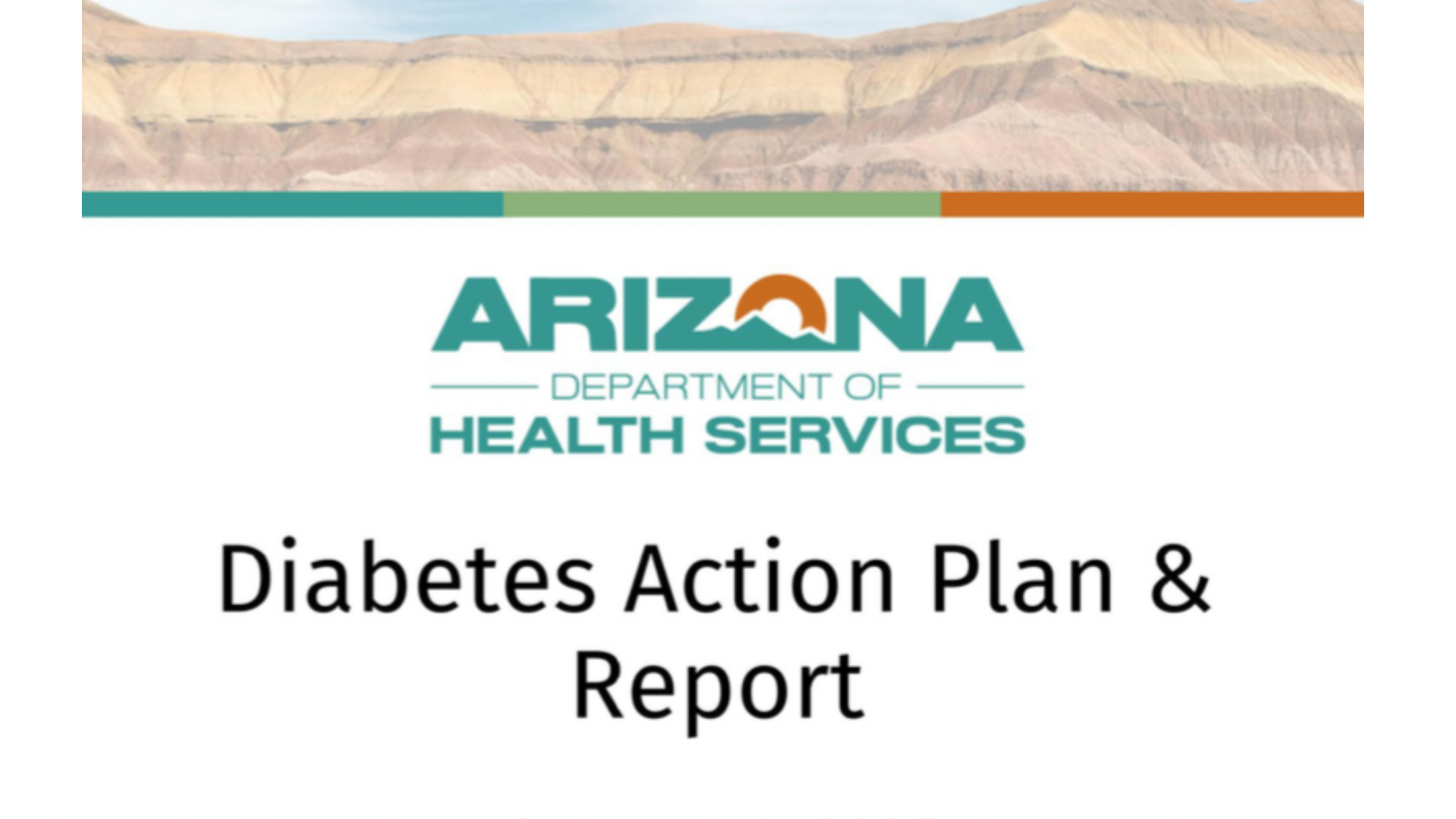Diabetes is a demanding and costly chronic disease that impacts many individuals across Arizona and the United States. A new report from the Arizona Department of Health Services (ADHS) highlights the significant burden diabetes is on our state’s health care system and communities while offering actionable recommendations to reduce its burden and improve the health of Arizonans.
The ADHS Diabetes Program, in collaboration with the Diabetes Action Plan and Report (DAP) Team and the DAP Data Workgroup of the Arizona Diabetes Coalition, has released the 2025 Diabetes Action Plan and Report (DAP). This comprehensive report builds on previous efforts to tackle diabetes in Arizona, emphasizing prevention and access to care.Through a year-long collaborative process, stakeholders utilized data from surveys, community sessions, and subject matter expert recommendations to identify impactful policies and actions. The plan prioritizes evidence-based approaches and grassroots insights to address the burden of diabetes, which affects over 615,000 Arizonans and costs the state $6.7 billion annually.
The Impact of Diabetes in Arizona
Diabetes is currently the eighth-leading cause of premature death in Arizona contributing significantly to early disability. Over 615,000 adults in Arizona live with diabetes, and nearly 2 million have prediabetes, a condition that often leads to type 2 diabetes if left unaddressed. Close to 90% of those with prediabetes are unaware of their condition.
Improperly managed diabetes can result in severe complications, including stroke, kidney disease, heart disease, blindness, lower leg amputation, nerve damage, and death. People with diabetes face a 50% higher risk of premature death compared to those without the condition.
The economic burden of diabetes in Arizona is substantial, with annual costs totaling $6.7 billion. That includes $5.1 billion in direct medical costs and $1.6 billion in indirect costs, such as absenteeism, reduced productivity, early disability, and mortality.
Understanding Diabetes
There are three main types of diabetes.
- Type 1 Diabetes
- Often diagnosed in children and young adults
- Results from the body’s inability to produce insulin
- Requires lifelong insulin therapy
- Type 2 Diabetes
- Accounts for up to 95% of all diabetes diagnosis
- Occurs when the body can produce insulin but cannot use it effectively
- Risk factors include being overweight, having a family history of diabetes, not being physically active, and being over the age of 45
- African Americans, Native Americans, and Hispanic individuals are at higher risk
- Gestational Diabetes
- Affects about 11.5% of pregnancies in Arizona
- Increases the risk of Type 2 diabetes in both the mother and the child
Steps to Lower Your Risk
Taking proactive steps can help manage diabetes and prevent its onset.
- Find movement you enjoy: All movement counts. There are many ways to be active. Activities like walking, swimming, house or yard work, taking the stairs or playing with pets all count toward an active lifestyle.
- Visit your doctor regularly: Regular exams can identify problems before they become more serious. Getting the right health services, screenings, and treatments can improve your chances of better outcomes. Request an A1C test to know where your blood sugar numbers stand, and know your numbers for high blood pressure.
- Eat nourishing foods: Focus on fruits, vegetables, whole grains, and low-fat dairy. Choose foods that honor your culture, your body, and your taste buds.
Understanding the scope of diabetes is a vital step toward reducing its impact. The 2025 Arizona Diabetes Action Plan and Report serves as a valuable resource for individuals, communities, and policymakers committed to addressing this public health challenge.










